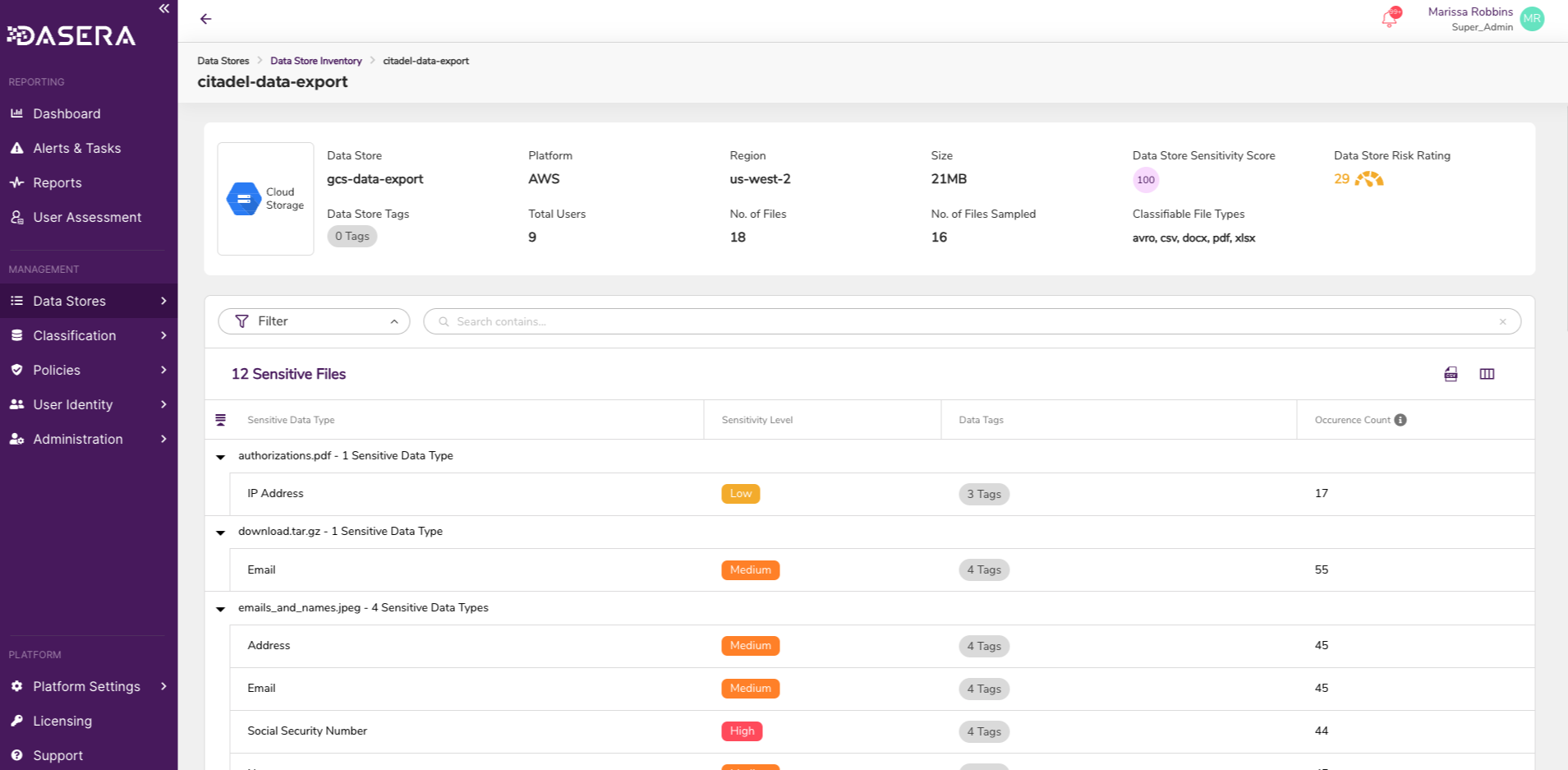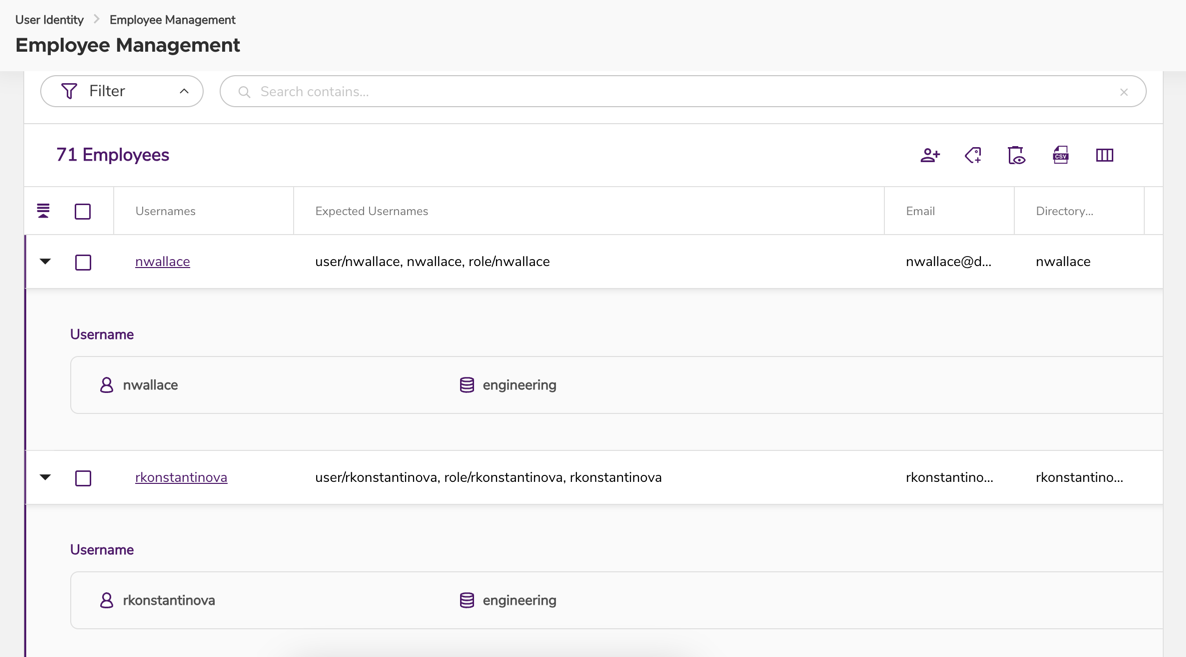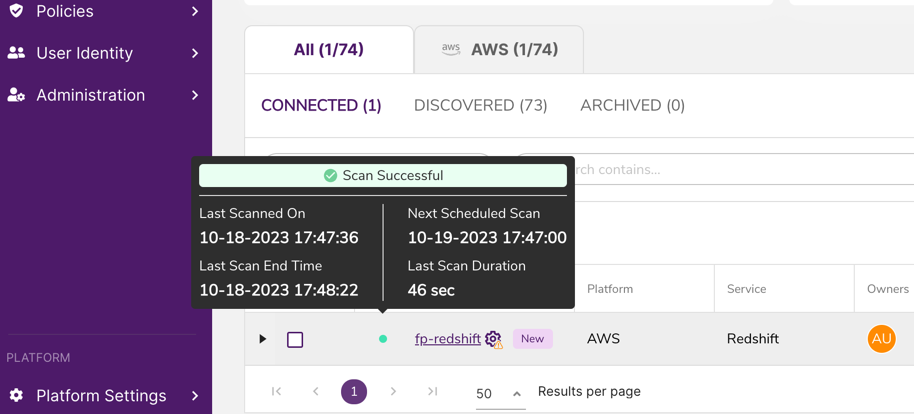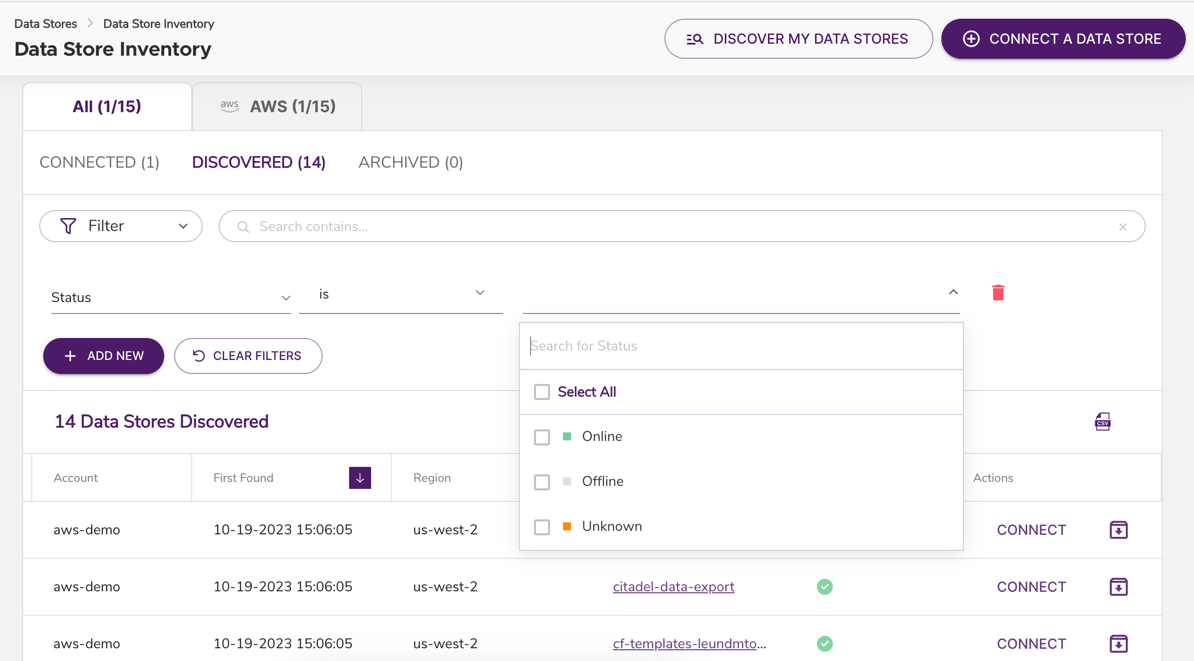Major New Features
Unstructured Data Classification for Google Cloud Storage
Netskope One DSPM now supports classification for unstructured data within Google Cloud Storage. Similar to our support for AWS S3 classification, these unstructured data stores employ an IAM-based authentication method. Sampling rate is based on your specified percentage input, and you can include regex to limit your scan scope. Text and image file types are supported for scanning. Read more about Unstructured Data Support for GCS.

Improvements and Updates
Employee Auto-Mapping Improvements
Netskope One DSPM now automatically maps AWS S3 principals to employees and supports multiple expected usernames per employee. Multiple expected Usernames can be added to an Okta (or other IDP) user profile as a comma-separated list to trigger auto-mapping. These updates help automate and reduce manual effort to link AWS IAM users and roles to their true employee identities, making it even easier to see who may have access to specific sensitive unstructured data across your organization.

Edit Flow Improvements
We've streamlined and simplified the process of making edits within Netskope One DSPM. For example, when making edits to a data store, you can save any changes to the credentials and capabilities tabs without being prompted to go through any redundant set-up steps. A warning appears if there's any error preventing a successful scan.
When making edits to an Employee Directory connection, you can make changes to the Provide Credentials and Mapping tabs, then save without repeating set-up steps. You can re-sync directory groups on the Include/Exclude tab, change which groups to include or exclude, or switch to CSV-uploaded groups.

Data Store Inventory Updates
Each connected data store now displays a tooltip with status details on the last scan, including whether the scan was successful, failed, in progress, or aborted. It also shows time and date details for last and next scans. View the tooltip by hovering over the colored status icon to the right of the data store name.

We've also introduced the ability to filter by data store status when searching the Discovered tab, allowing you to quickly identify which data stores are online, offline, or of unknown status, and connect if desired.

These enhancements make the Data Store Inventory page your central hub for insight into all data stores in your environment.
Additional Context in Data Store CSV Export
Exported CSV files from the Data Store Inventory page now show additional information when exporting from the Connected, Discovered, and Archived tabs. These new fields enable you to download all available information on a data store, getting a holistic look into the data store when viewing the information offline.